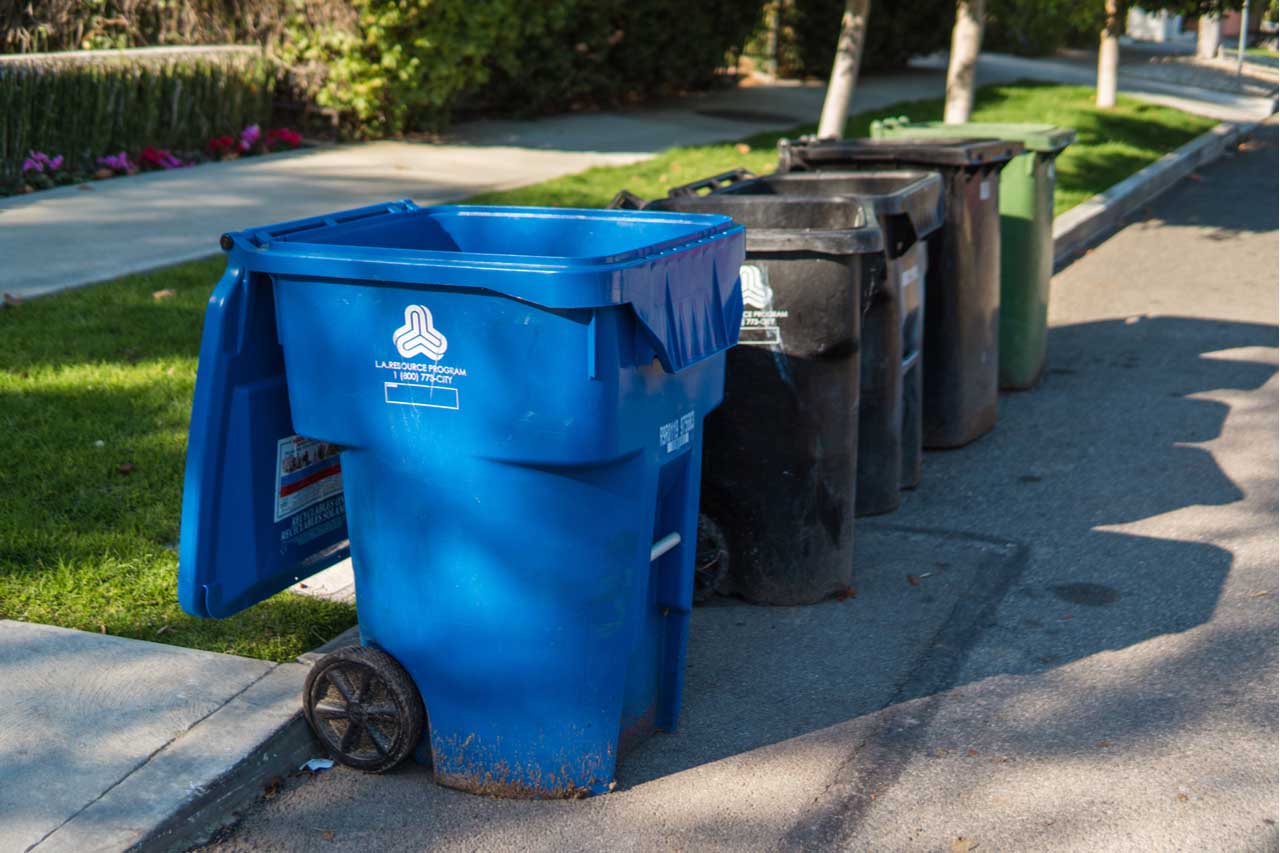
In communities around the country, recycling programs are limiting the materials they collect, altering service hours or shutting down altogether. | Oksana Shturo/Shutterstock
Recycling programs nationwide have curtailed service due to the coronavirus pandemic, potentially hampering the supply of scrap plastics moving to reclaimers in the weeks to come.
Some recycling operators are citing concerns over the novel coronavirus spreading among employees or through interactions with customers or contaminated recyclables. Workforce shortages are adding additional pressure.
In response, some programs are limiting the materials they collect, altering service hours or shutting down altogether, although the changes have been largely limited to smaller communities.
“It means the material isn’t going to be sorted and get to the recyclers,” said Steve Alexander, president of the Association of Plastic Recyclers (APR). “That’s a problem.” (APR owns Resource Recycling, Inc., publisher of Plastics Recycling Update.)
Constraining resin supply?
Collection disruptions could present difficulties for reclaimers looking to source feedstock.
In Europe, where strict regulations disrupting daily life and limiting business activity have been a couple weeks ahead of such changes in the U.S., experts are pointing to signs of recycled plastic supply disruptions on the horizon.
European recycling firms are concerned about lower redemption rates in deposit return programs, as well as wider collection rate decreases, according to analysis from Independent Commodity Intelligence Services (ICIS).
“Reduced collection rates typically take several weeks to be felt in the market because of the time it takes post-consumer or post-industrial material to work through the chain,” the ICIS write-up noted.
In the U.S., program shifts are just now being announced.
The majority of U.S. recycling programs, including larger ones such as New York City’s, have not been interrupted by the virus. But numerous service changes have been reported by smaller programs across the map.
In Michigan, Emmet County began by suspending collection of mixed containers, explaining that the materials recovery facility (MRF) processing line prevented social distancing measures from being enacted. Then, the county suspended curbside recycling altogether through at least April 6. Elsewhere in the state, drop-off closures were reported in Calhoun County, East Lansing, Grayling, Livingston County, Michigan State University, Missaukee County, Mount Pleasant, Sterling Heights and more.
In the western U.S., Casper, Wyo. suspended recycling service at its nine recycling depots. The program stated residents should place their recyclable plastics in the garbage “if they do not have storage capacity until we re-open all services.”
York County, S.C. stopped processing mixed recyclables at its MRF, noting that the facility has a staff of more than 20 people working closely together. The setup does not allow for social distancing. Materials placed at the curb in recycling carts will be disposed of at a landfill.
Mid-Coast Solid Waste in Maine took the route of limiting collection to a single material. The agency will stop accepting all recyclables except cardboard at its transfer station, citing the risk of exposure for workers.
In Rockdale County, Ga., a recycling center stopped accepting recyclables while continuing to bring in garbage. “Recyclables have the most interaction with the public as this involves people getting out of their vehicles, in close proximity to one another, and our staff directing the numerous items, handling them, and sorting them,” a program representative told the Rockdale Citizen.
Other service impacts were reported in Bradford, Tioga and Sullivan counties, Pa.; Fayetteville, Ark.; Fort Smith, Ark.; Hannibal, Mo.; Jefferson Parish, La.; Kanawha County, W.Va.; Killeen, Texas; Marshall, Mo.; Mesquite, Texas; Montezuma County, Colo.; Monticello, N.Y.; New Orleans, La.; Orangeburg, S.C.; Park City, Utah; Pauls Valley, Okla.; Port Alberni, British Columbia; Raleigh County, W.V.; Selinsgrove, Pa.; Springfield, Mo.; Starkville, Miss.; Temple, Texas; Thorndike, Maine; and Wilmington, Ohio.
Deposit disruptions
Deposit programs are also being impacted in Connecticut, Iowa, Maine, Massachusetts, New York, Oregon and Vermont, according to Waste Dive.
Additionally, in the Canadian province of Saskatchewan, SARCAN, an operator of 72 container recycling depots, closed all its locations indefinitely.
Waste Management, the largest residential garbage and recyclables hauler in North America, closed a number of public drop-off sites and deposit container buyback centers across California, but operations at its MRFs continue.
With those program changes just starting to take place in the U.S., the coming weeks could bring supply-side obstacles in North America.
“The biggest thing we have to try to do here is keep the recycling stream flowing,” Alexander said. He pointed to the consumer goods industry, in which manufacturers are ramping up production of critical products. Many of these products will require packaging, which could bring stable or growing end market demand.
“There’s everything you need from a recycling standpoint,” he said. “There should be demand for the recycled material if companies are consistent with their commitments.”
ICIS also weighed in on the potential for the coronavirus fallout to impact brand owner commitments – particularly if supply of recycled material is constrained.
“Several sources suggest that the pandemic will take the focus off sustainability targets in the short term,” the ICIS analysis stated. “They also expect brand owners to switch back to virgin, which may be more readily available.”
A version of this story appeared in Resource Recycling on March 24.
More stories about collection
- Report shows $5B in materials saved from landfills
- NexTrex program boosts local film recovery efforts
- How MRFs develop their accepted material lists


